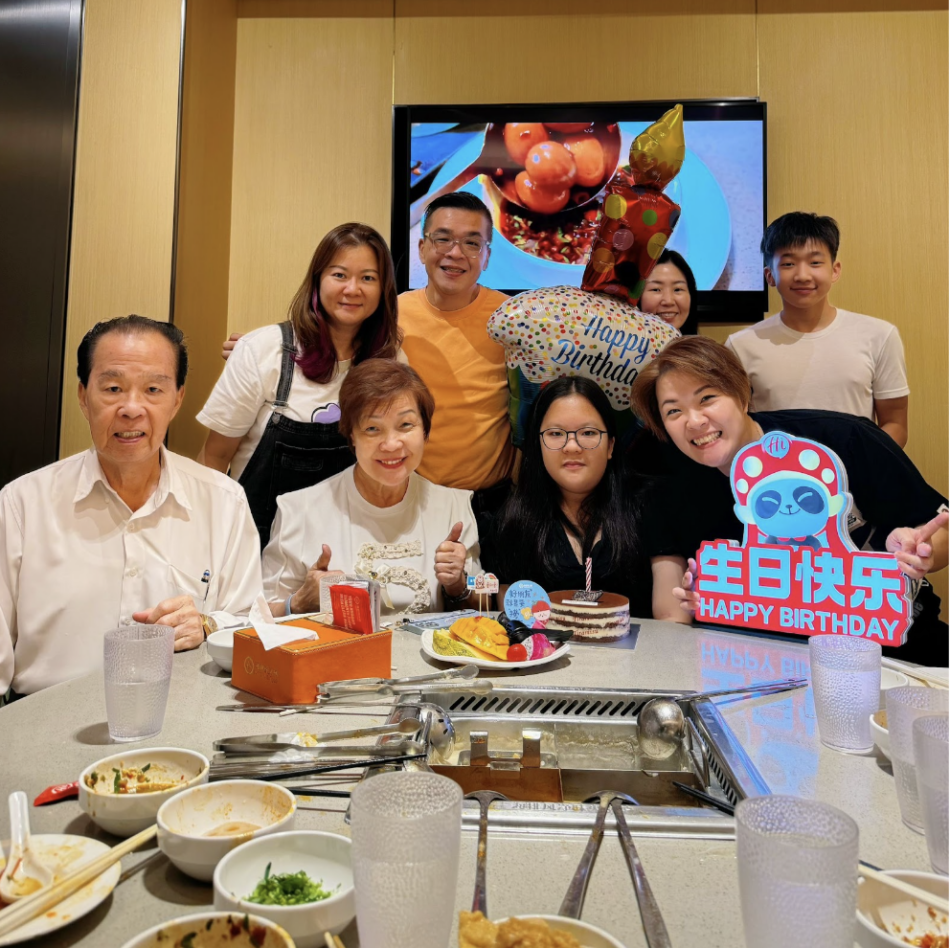Contribution Name: Cedar Girls Secondary School
Year of Author: 2010
There is a Chinese proverb, “家有一老如有一宝,” which means that the elderly are the equivalent of treasure in a family. This is true, but what is also true is that the elderly also have their own struggles to face in this ever-changing world. In my family, my grandfather, 79, is a prime example of this. He can be cheerful and radiant at times, always talking about television dramas whenever we come to visit and offering us the best food at the table, but he has his own share of difficulties too.
First, he is a diabetic patient, which means that there can be times that his blood sugar fluctuates, leading to him feeling unwell and needing help. As a result, he needs family members to be around him in case he has one of these “diabetic incidents.” Second, due to the occasional language barrier and generation gap, conversations with him can be difficult at times, leading to miscommunications and potential arguments that can shatter the already fragile relationship between family members, be it whether the conflicts are between him or between family members.
When this happens, anger and frustration are typically the results of these little conflicts that can lead to cracks in the tapestry we call our own. Family members now have their own little “hate barriers” and refuse to talk to each other unless it is utterly necessary. Watching the family fall apart is heartbreaking. Watching my family members break down mentally and physically, having to balance their own jobs and taking care of my grandparents, is also saddening. The stress that comes with the commitment of caregiving can also cause outbursts and feuds between them that apologies and money cannot fix, and in the end, leads to a larger distance between the people who have lived in the same house since they were born.
And sometimes, it’s hard not to cry when you see this going on like the domino effect– everything eventually goes wrong after the first thing does. It’s upsetting not only for the caregivers but also the whole family. However, I firmly believe that the elderly are not responsible for this. It is just the effects of stress and worry for the future of the elderly caregivers are caring for that are causing these rifts and disconnect between family members that are already connected by blood.
Life is not a TV drama. Not everything can be fixed in just a few episodes or seasons. Nothing can really go back to normal in a span of a few hours. Rather, it is a change that requires effort from everyone and can be emotionally wrecking. But the effects of these consistent changes can be touching as the family becomes connected again. While the elderly have their challenges, it is also safe to say that caregivers have their own too. And when a balance is struck between caregiving duties and personal responsibilities, family relationships can blossom and continue to remain strong as the family grows old together.
– Student from Cedar Girls Secondary School
照顾家庭长者的挑战与回报
有句中国谚语说得好:“家有一老,如有一宝。”这句话的确很有道理,但同样真实的是,老人们在这个日新月异的世界中也有他们自己的挑战要面对。以我家为例,我的爷爷今年79岁,他就是一个很好的例子。他有时乐观开朗,神采奕奕,总是热衷于跟我们谈论电视连续剧,每次我们去看他时还会把最好的食物留给我们。然而,他也有自己的困难需要克服。
首先,他是一名糖尿病患者,这意味着他的血糖有时会波动,从而导致身体不适,需要人照顾。因此,家人必须时刻在他身边,以防他发生类似的“糖尿病突发事件”。其次,由于偶尔存在语言障碍和代沟,与他沟通有时会变得困难,导致误解甚至争执,这可能破坏本已脆弱的家庭关系,无论是他与家人之间,还是家人彼此之间的矛盾。
当这些情况发生时,愤怒和沮丧往往是这些小矛盾的结果。这些小裂痕会像蛛网一样扩散开来,家人之间会产生“怨恨的隔阂”,除非万不得已,彼此间都不愿再沟通。眼看着这个家庭逐渐破裂,真是令人心痛。看着我的家人因为平衡工作和照顾祖父母而在精神上和身体上崩溃,也让人感到悲伤。照顾老人的压力会导致他们之间的爆发式争吵,而这种伤痕不是道歉或金钱能修复的,最终只会让同住一个屋檐下的亲人之间距离越来越远。
有时候,看到这一切像多米诺骨牌效应一样发生,真的很难不哭泣——第一块牌倒下后,一切都逐渐变得不可收拾。这不仅让照顾者痛苦,也让整个家庭陷入困境。然而,我坚信,老人并不是这一切的罪魁祸首。这只是照顾者因压力和对老人未来的担忧而导致的结果,才造成了家人之间的裂痕和断联,而这些家人本应因血缘而紧密相连。
生活不是一部电视剧。不可能在几集或几季内就解决所有问题,也不可能在短短几个小时内让一切回归正常。这是一个需要每个人共同努力的过程,它可能在情感上令人崩溃,但持续的改变会让人感动,家庭最终能再次紧密相连。虽然老人有他们的挑战,但照顾者也有自己的难题。当照顾责任和个人生活之间达成平衡时,家庭关系才能如花朵般绽放,并在家庭共同成长的过程中一直保持紧密。
– Cedar Girls’ Secondary School 学生
This work includes translation generated by ChatGPT, an AI language model developed by OpenAI.
此作品包含由OpenAI开发的AI语言模型ChatGPT生成的翻译内容。

